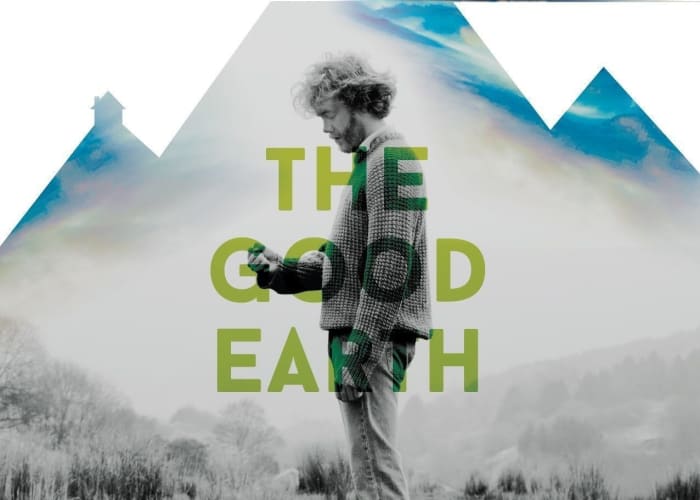Motherlode's The Good Earth is being sold as a rousing drama about a small community fighting against “the man” in order to preserve its integrity. The reality, however, seems a little more complicated.
Its development began two years ago, as part of the Wales Millennium Centre’s Incubator project, in which new companies are encouraged to present innovative work. It is inspired by a situation which affected a tiny Gwent village in 1973.
Through the eyes of a small child, we watch events unfold: the local council, fearful that a mountain is unstable, seeks to move local residents into safer housing on a nearby estate. A diminishing band of villagers fights, for several years, to remain in situ. An apparently minor accident, however, changes things, although not in an entirely predictable manner.
The action takes place on Buddug James Jones’s simple but adaptable set, comprising tables, chairs and an ominous arrangement of metallic poles. These seemingly represent the unwelcome intrusion of technology into the rural landscape.
The performances cannot be faulted. Emma Vickery is irritatingly charming as the hyperactive pre-teen Jackie, who “investigates” the goings-on in her neighbours’ lives. Director Rachael Boulton is instantly relatable as Dina, the single mother with the weight of the world on her shoulders.
Max Mackintosh (also the show’s musical director) has the pivotal role as Dina’s son, James, whose articulateness makes him the prime political campaigner. It is his lack of wisdom in other areas, however, which leads to calamity; in him we see the tension between high-minded commitment and self-sabotaging stubbornness.
Gwenllian Higginson is Gwen, James’s fiancée, whose understandable concern for their future causes a breach. Kate Ellis plays Trish, the flighty family friend, whose quest for love also leads her to betray the cause.
The real-life village which inspired the piece is a few miles from Aberfan, where a landslide in 1966 cost the lives of 144 people, mostly children. This tragedy is not mentioned in The Good Earth, however, and the council’s take on the issue is not heard—thus the argument that their actions might be based on legitimate safety concerns rather than the wanton desire to destroy a tiny community goes unrehearsed.
The idyllic nature of bucolic life is seductively contrasted with the soullessness of a council estate existence. The downside of this, however, is social isolation and the kind of insularity which leads to “you’re not from around here” being perceived as a grave insult.
The wider context is only vaguely sketched. There is no indication of how the villagers make a living; the complaint is of industries destroying communities by arriving rather than leaving and the chronology is fudged such that outside events seem not to impinge.
The practicalities of the production enhance this sense of separateness. The sound effects are provided by the actors themselves; they also sing the interstitial protest songs—in Welsh, even though it is made clear that the protagonists themselves are not Welsh-speakers.
The dialogue is sharper and funnier than one might have expected from a devised production and the direction is energetic and inventive for the most part; although the pace does tend to slow when we arrive at moments of high drama. The repetitive dragging of tables and chairs along the floor, redolent of the impact of machines, is annoying—intentionally so, but still headache-inducing.
Motherlode has created a piece which, for all its emotional manipulativeness, is visually arresting and very well acted. Whether it is a subversively complex take on the eternal struggle between town and country, however, or simply a muddled one will be for the viewer to judge.
